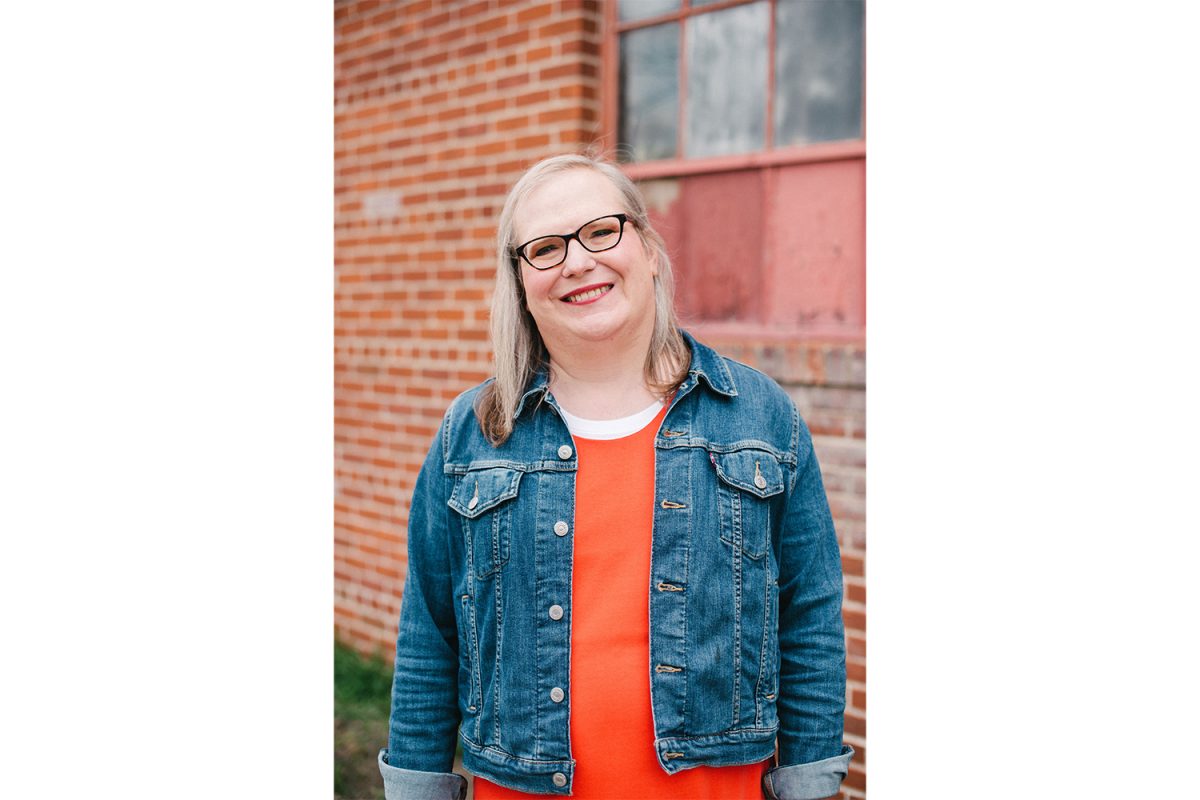From Erie, Pennsylvania, author Anya Johanna DeNiro released her surrealist short novel “OKPsyche” in September of this year, which tells the story of an unnamed transgendered woman living through a natural disaster, trying to find her place in the world while also dealing with relational complexities, in second-person narration.
DeNiro received her Bachelor of Arts in English from the College of Wooster and a Master of Fine Arts in Creative Writing from the University of Virginia. She currently resides in St. Paul, Minnesota. DeNiro read excerpts from “OKPsyche” at Prairie Lights Cafe in conjunction with author Laura Kat Young on Oct. 27.
The Daily Iowan: Who or what inspires you to write?
Anya Johanna DeNiro: A lot of the stuff I write has a core that is hopefully speaking to other trans people, particularly trans women. So a lot of the stuff I write is for them, but not exclusively. I’ve been writing since I was a little kid, and it’s just a compulsion. How I write or why I write changes, but it’s something that I’ve always had to do.
DI: What were some of the bigger challenges you faced in your creation of this novel?
DeNiro: Well, it took a long time. Seven or eight years. I didn’t even know if it was a novel, I was just writing. Then I was like, ‘I’ll use these fragments and start sticking them together.’ Then, it started getting bigger and bigger [until] the narrative arc showed itself. Even if it was pretty loose, I think the biggest challenge was knowing what it was. A novel can mean a lot of different things, but I was interested in thinking of it as a novel. Once I was able to do that — and give myself permission to do that — things started falling into place.
DI: Because you’ve been writing this piece for a while, have you noticed your writing style has changed over time?
DeNiro: It’s totally changed: The voice is more or less consistent, but I was changing. You know, I started writing when I first started transitioning and things were just kind of a sh*t-show. All kinds of stuff was going on. A lot of great stuff, but a lot of really hard stuff, too. The character that I was writing fell further ahead in the transition than I was at the time, but then I caught up. It was aspirational to an extent at first, you know? Then, it came from my experience. You reach a certain point in your transition where the big stuff is taken care of, and then it’s like, okay, well, what now? Now, you actually have to start building a life.
DI: Why is it important to write the stories that you write?
RELATED: Ask the Author | Tim Johnston
DeNiro: I think, particularly with trans femme stories, a lot of them have been told before, and I think that there has at times been kind of a limited perception of what those stories ought to be or frankly deserved to be; I’m just trying to get beyond that, trying to expand those possibilities, and expand the vocabulary of what that type of storytelling can be.
DI: What advice would you give a young, transgender writer looking to have their work published?
DeNiro: It is really important to never compromise your voice; your voice is what you have and no one can ever take it away from you. A lot of publishers are not receptive to trans voices, no matter what they say, so you really need to establish a community in order to come out on the other side and, if nothing else, you have that group that can uplift each other.



